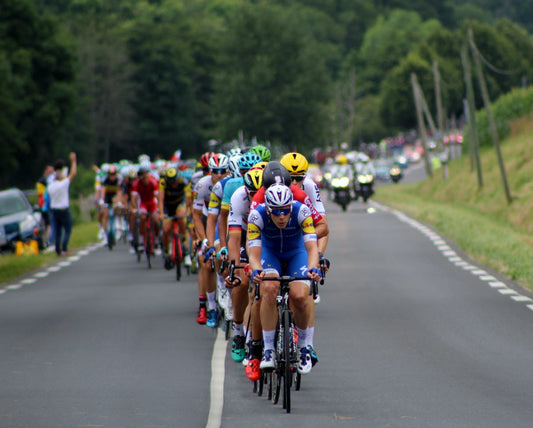reys uhv trooth
Noun, Proper Noun
Race of Truth is a term used to describe a solo time trial race.
Example usage: 'I just finished a Race of Truth and my time was really good!'
Most used in: Cycling competitions around the world.
Most used by: Cyclists who compete in time trials.
Popularity: 8/10
Comedy Value: 3/10
Also see: Time Trial, TT, Individual Time Trial, ITT, Chrono, Chrono Race, Solo Race,
The Race of Truth: What You Need to Know
The Race of Truth is a cycling term used to describe a time trial or solo time trial race. During this race, cyclists compete against the clock in an individual race. There is no team element or drafting allowed, as the cyclist's performance is solely dependent upon their own abilities.
Statistics show that the Race of Truth is the most important form of bicycle racing. It is used in the Olympics and other major international competitions. In addition, it is a popular form of racing in the United States and other countries. In the United States, the Race of Truth is often referred to as the 'Individual Time Trial'.
The Race of Truth is a unique form of cycling as it requires a cyclist to go as fast as possible without any help from a team or other cyclists. It is a test of one's mental and physical capabilities, as well as a test of endurance. As the cyclist is racing against the clock, they must be able to maintain a steady pace and stay focused in order to achieve the best results.
The Race of Truth is a popular form of cycling, and has been a part of the sport for many years. It is an important form of racing, as it helps to identify the best cyclists in the world. It is also a great way for cyclists to challenge themselves and improve their skills.
The Origin of the Cycling Term 'Race of Truth'
The term 'Race of Truth' dates back to the late 19th century and is attributed to the French writer and cycling enthusiast Octave Lapize. The term was first used in reference to the Tour de France, a long-distance bicycle race which began in 1903.
The term was used to describe the grueling nature of the race, as riders had to rely solely on their own strength to complete the course. It was also used to refer to the fact that the race was intended to be an honest competition, with no outside help or support allowed.
The term has since become a popular phrase in cycling circles and is used to refer to any race which requires riders to rely solely on their own strength and endurance. The term is still used today, and is a reminder of the dedication and determination needed to complete a race without external assistance.












